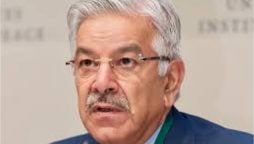Pakistan and Afghanistan move toward border reopening within two days
ISLAMABAD: The Pakistan-Afghanistan border is expected to reopen within the next 24 to 48 hours, sources told private media on Monday, following an agreement on a ceasefire between the two neighbouring countries.
Pakistan had closed the Torkham and Chaman crossings on October 12 after the Afghan Taliban, along with affiliated militants, attacked multiple Pakistani border posts.
Officials from both sides have now agreed to reopen the border if no new disputes arise, the sources confirmed.
Background of the Clashes:
The border clashes began on the night between October 11 and 12 when Afghan Taliban militants launched unprovoked attacks on Pakistani forces. According to the Inter-Services Public Relations (ISPR), more than 200 militants were killed, while 23 Pakistani soldiers embraced martyrdom while defending the border.
In response, Pakistan carried out precision strikes inside Afghanistan, targeting terrorist hideouts in Kandahar province and Kabul.
A 48-hour ceasefire was first announced on October 15 at Afghanistan’s request, later extended for another two days on October 17 as both countries sent delegations to Doha, Qatar, for peace talks.
Ceasefire Agreement and Future Talks:
On Sunday, Pakistan and Afghanistan agreed to an immediate ceasefire during Qatar-mediated negotiations.
Defence Minister Khawaja Muhammad Asif confirmed the agreement, saying both sides would meet again on October 25 in Istanbul, Turkiye, to discuss further details.
Taliban spokesperson Zabihullah Mujahid also confirmed the truce, calling it a “complete and meaningful ceasefire.”
Terrorism Main Reason Behind Tensions:
In an interview with Al Jazeera Arabic, Asif said the Afghan defense minister admitted that terrorism was the main cause of tension between the two countries.
“The key goal of this ceasefire is to eliminate terrorism,” Asif said. He added that both sides now realize that ending terrorism immediately is essential for regional stability.
The minister noted that terrorism has plagued the border areas for years, and both nations have agreed to make serious efforts to curb it. Failure to do so, he warned, could threaten regional peace.
Asif expressed hope that the ceasefire would help restore peace, normalize relations, and revive trade and transit between the two countries, allowing Afghanistan to resume using Pakistani ports.
People Can Breathe Again:
Residents living near the border have welcomed the ceasefire, hoping it will end the violence and revive trade.
“People can finally breathe and feel relieved,” said Sadiq Shah, a 56-year-old shopkeeper from Baizai on the Pakistani side. “Before this, gunfire damaged several houses in our village.”
He added, “Both sides are Muslim and Pashtun — why fight each other? Trade used to flourish here, but now we are shooting at one another. What country does that?”
Trade Losses Mount as Border Remains Shut:
Over 1,500 trucks and containers carrying cement, medicines, rice, and other goods are currently stranded at Torkham, according to a Pakistani customs official in Peshawar.
Abdul Rahman Habib, spokesperson for the Taliban’s economy ministry, said large quantities of fruits and vegetables are rotting, causing heavy losses to Afghan traders.
“If this continues,” Habib warned, “it could raise prices, increase unemployment, and destabilise markets.” He urged that trade relations be kept separate from political disputes.
Source link
 The Republic News News for Everyone | News Aggregator
The Republic News News for Everyone | News Aggregator


